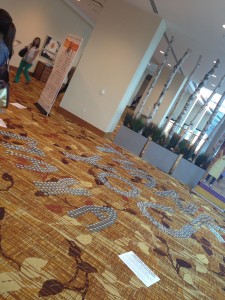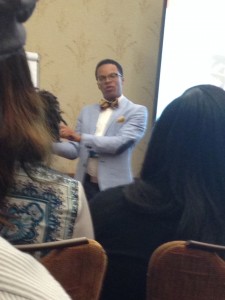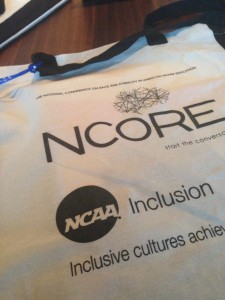Ecstatic about the week ahead, the National Conference on Race and Ethnicity surpassed all of my expectations. The atmosphere was unmatched, scholars, faculty and staff from institutions across the globe joined in the spirit of diversity and inclusion. Throughout the week, I attended seminars that addressed issues that face many African and Hispanic American students in higher education. This inspired my interest in the Critical Race Theory (CRT), discussed by noted scholar, Dr. Terrell Strayhorn, who defined the theory as a set of propositions that centers race and racism that explain the lived experiences of people of color. He assessed several key tenets of CRT including:
• Permanency of Racism
• Challenges Dominant Ideology
o Race neutrality
o Liberalism
o Meritocracy
o Color blindness
o Increment change
• Centrality of experimental knowledge
• Challenges ahistoricism: transdisciplinary
• Commitment to Social Justice
This topic echoed in many more seminars that I have included below:
• Black Greek Letter Fraternity/Sorority Growth for the 21st Century
Presented by Rasheed Ali Cromwell and Syreeta Green who discussed recruitment strategies for BGLOs at predominantly white institutions
• Hip Hop Forum 2014- Hip Hop Evolution: From Urban Shadows to the Global Mainstream and Academy
Renowned hip hop artists, Afrika Bambaataa and Yo Yo, present the acceptance of the hip hop culture and its importance in higher education. Cornell University has taken the leap to create a “hip hop” curriculum as well as shed light on this mainstream, global phenomenon, why can’t we?
• Institutional Collaboration in Support of Black Male Students
Three scholars apply the implications of CRT as it relates to black male students attending PWIs, and support groups to motivate these students
• The Black Hair Politick: The Role of Hair in the Lives of Black Collegiate Women at Predominantly White Universities
This session investigated the social function of hair in four arenas: biological fact, symbolism, abjectivity, and cultural practice in respect to the lives of six Black collegiate women at a PWI.
• ID_BR- Discussing Ethnic Identity in Brazil
The last bulleted point was very special for me, because in this experience I was asked to join the study with faculty from PUC-RIO Brazil, to further discuss racial identity and self perception amongst people belonging to the African diaspora, who have difficulty stimulating dialogue about one’s experiences based on physical characteristics. I will further explore this study amongst people in the Caribbean, who face the same struggle based on their phenotypic appearance. This experience has awarded me an invite to help in presenting at next year’s NCORE.
Every seminar I attended, I received contact information from all of the speakers. Speakers that I would love to invite to the university are Dr. Terrell Strayhorn and Marc Lamont Hill. These scholars not only have an awesome reputation, but I strongly believe that their message needs to be heard by my fellow Notre Dame students. I can truly say, this was an experience of a lifetime, and one in which I will never forget. I am a proud “NCORE-ian”.




